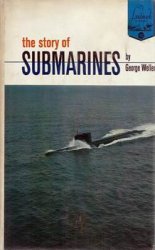1756 Al-Sabah family become rulers of Kuwait.
1899 Kuwait becomes a British protectorate.
1938 First oil discoveries are made in Kuwait.
1961 Kuwait regains its independence from Britain.
1962 United Nations recognizes Kuwait as an independent state.
1963 Iraq recognizes Kuwait's independence.
1971 Elections are held for new national assembly.
1976 Ruling family dissolves national assembly.
1977 Jabir III becomes thirteenth amir of Kuwait.
1979 Establishment of Iran's Islamic republic causes tension between Iran and Kuwait.
1981-1983 Kuwaiti sovereignty is threatened by terrorist groups.
1985 Kuwaiti tankers sail under U. S. flags to discourage Iranian attacks.
1990 (July 17-18) Iraq threatens to use force against Kuwait for driving oil prices down
By overproduction.
1990 (Aug. 2) After two weeks of threatening military action, Iraq invades Kuwait.
1990 (Aug. 7) United Nations authorizes trade and financial embargo against Iraq.
1990 (Nov. 27) Under U. S. prompting, United Nations authorizes use of force against Iraq if it does not withdraw from Kuwait by mid-January.
1991 (Jan. 16) U. S.-led international military coalition launches missile and air strikes on Iraq.
War I postponed many British promises. With the 1922 Treaty of Uqair, the British finally drew the boundaries between Kuwait and its neighbors, Iraq and Saudi Arabia.
British protection, the leadership of the al-Sabah family, and the discovery of oil all helped transform Kuwait from a small pearl-fishing port into a rich and prosperous country following World War II. In 1961 Kuwait and Britain jointly agreed to terminate the 1899 agreement, and Kuwait became an independent country to be ruled by the al-Sabah family.
The Iraqi government, however, did not recognize Kuwait as an independent country and threatened to invade and annex it. Under the Ottoman administrative system, Kuwait had been considered part of the Province of Basra, now a city in southern Iraq. Therefore Iraq always considered Kuwait as part of a larger Iraq.
1991 (Feb. 27) Iraqi troops withdraw from Kuwait.
1991 (Mar. 4) Kuwaiti amir Sheik Jabir al-Ahmed al-Sabah returns from exile in Saudi
Arabia.
1991 (June 25) Martial law imposed at end of Iraqi occupation is lifted.
1992 (Apr. 16) U. N. commission awards Kuwait part of Iraq's only operating seaport and the disputed Rumailah oil field.
1992 (Oct. 11) Kuwaiti news agency announces government's agreement to purchase
$4 billion worth of advanced tanks made in United States.
1992 (Oct. 12) Government ends six-year-old policy of prepublication newspaper
Censorship.
1992 (Oct. 17) New cabinet includes six members from groups opposed to royal family.
1993 (Apr.) During visit to Kuwait, former U. S. president George Bush is awarded medal and honorary doctoral degree.
1993 (Apr. 27) Kuwait arrests Iraqis accused of planning assassination attempt against
Bush.
1993 (May 20) Government announces plan to dig security trench along Iraq border.
1993 (June 26) United States launches missile attack against Iraqi intelligence headquarters in Baghdad in retaliation for Iraq's assassination plot against Bush.
1994 (June) U. N. compensation commission distributes first payments to victims of Iraqi occupation.
1994 (Oct. 7) Iraq deploys 20,000 troops along Kuwaiti border, but deployment of U. S.
Troops forces Iraqis to withdraw.
They were particularly interested in the two islands of Warbah and Bubiyan, which provided easy access to the Persian Gulf waters. Iraq was also motivated by the desire to control the rich Kuwaiti oil resources.
Facing the threat of invasion, the al-Sabah rulers requested Britain's assistance once again. British troops were quickly dispatched to Kuwait. The Arab League, an organization in charge of Arab unity and cooperation, agreed to assist Kuwait in defending its territory, and several league members sent troops to Kuwait.
The motivation for the Arab League to assist Kuwait was to keep the country from reverting to its protectorate status. In 1963 the Arab League troops were no longer needed. The existing Iraqi government was overthrown, and the new government recognized Kuwait's independence.
Kuwait Time Line (continued)
1994 (Oct. 28) U. S. president Clinton visits Kuwait and is honored with medal.
1994 (Nov. 10) Iraqi president Saddam Hussein signs statement recognizing Kuwait's sovereignty and territorial integrity.
1995 (Oct. 31) Kuwait joins other Arab nations in denouncing U. S. plan to move its embassy in Israel from Tel Aviv to Jerusalem.
1996 Kuwait holds first parliamentary elections in a decade.
1996 (Sept. 11-12) To curb Iraqi military operation, U. S. president Clinton dispatches
Fighter planes to Kuwait and bombers to island of Diego Garcia.
1996 (Oct. 7) In second parliamentary elections since being liberated from Iraq, proroyalists win majority of seats.
1997 (May 12) Government plan to send aid to help victims of earthquake in Iran is considered friendly gesture by Iranian government.
1997 (Nov. 15-18) Kuwait participates in Middle East and North Africa Economic Conference, which is boycotted by most Arab League nations to protest new Israeli settlements in Palestinian lands.
1998 (Feb. 10) During visit of U. S. secretary of state Madeleine Albright, Kuwait announces its support for armed strike against Iraq for ignoring instructions of U. N. weapons inspectors.
1998 (Mar.) Kuwaiti government falls because of a no-confidence vote in its
Information minister; however, the government cabinet remains in power by reshuffling its members.




 World History
World History









